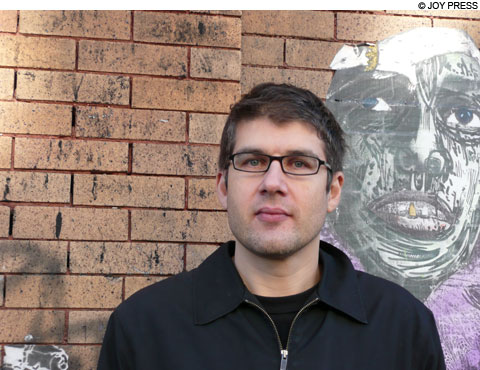 |
Quick, try to think of futuristic music that has nothing to do with the music of the past. Can't do it? Then perhaps you suffer from "retromania," an affliction that music critic Simon Reynolds sees as a crippling encroachment by music culture's recent past on the present and future that has stifled innovation and turned once-vibrant musical scenes into lame playground echo chambers of nostalgia. His 2011 book, Retromania: Pop Culture's Addiction To Its Own Past (Faber & Faber) is an indictment of our modern times, but also a self-indictment, since Reynolds himself has been a mythologizer of rock's storied past in his numerous articles and books on post-punk, rave, and '80s/'90s "alternative." It can be difficult to promote a musical futurism when being knowledgeable about music inevitably means proselytizing about music's past, right? I spoke with Reynolds — who takes part in this weekend's "Tinnitus: A Symposium on Art and Rock 'n' Roll" at Harvard — about the musical struggle for supremacy of the future — if there is one.
I REALLY ENJOYEDRETROMANIA— ALTHOUGH SAYING I "ENJOYED" IT IS KIND OF AN ODD STATEMENT, SINCE THE BOOK'S SUCH A BUMMER. ITS CENTRAL THESIS IS THAT MUSIC HAS CEASED TO MOVE FORWARD, AT LEAST AS AN INVENTIVE AND INNOVATIVE POP CULTURE PHENOMENON. BUT HERE'S A QUESTION: WHY DOES MUSIC NEED TO MOVE FORWARD?
Well you know, if you look at the history of music in the last century, it consistently has moved forward, whether by the intentional activities of artists who believe, you know, "We've got to keep moving," and those sorts of modernistic ideas, or if it's diluted and theoretical in rock and pop culture, generally. But there's this general thing of "Let's keep changing" — that's the rule. I mean, look at the history of jazz: it keeps moving, and then it stops moving, and jazz enters that era, with Wynton Marsalis and that sort of Lincoln Center sort of crowd, approaching a sort of neo-classical period, implying that jazz is the new classical music and that the genre sort of reached a halting point.
But up until then, jazz was constantly changing and branching off — and you still have people who do avant-garde jazz of some form or another, hybridizing forms. Most forms of music just keep on moving, partly because of technology changing and partly because of each new musician or artist wanting to differentiate themselves from everyone else and come up with new sounds. I think that still happens in dance music, in hip-hop, and even in pop, but in rock culture it seems to have fallen back on itself.
New artists come along and they seem to have the same — they have this archival mindset, they have the archive spread out before them and they'll take a bit from this decade and a bit from that decade. Like so many of these Pitchfork acts — not bands sanctioned by Pitchfork but bands that they review — they're like that. Or KCRW, it's this NPR station out here, and they have their own radio sound, it's like Radio Pitchfork, almost. And those sorts of groups, their sound is assembled from bits and bobs from the past, and it's very hard to figure out what's actually new about them.